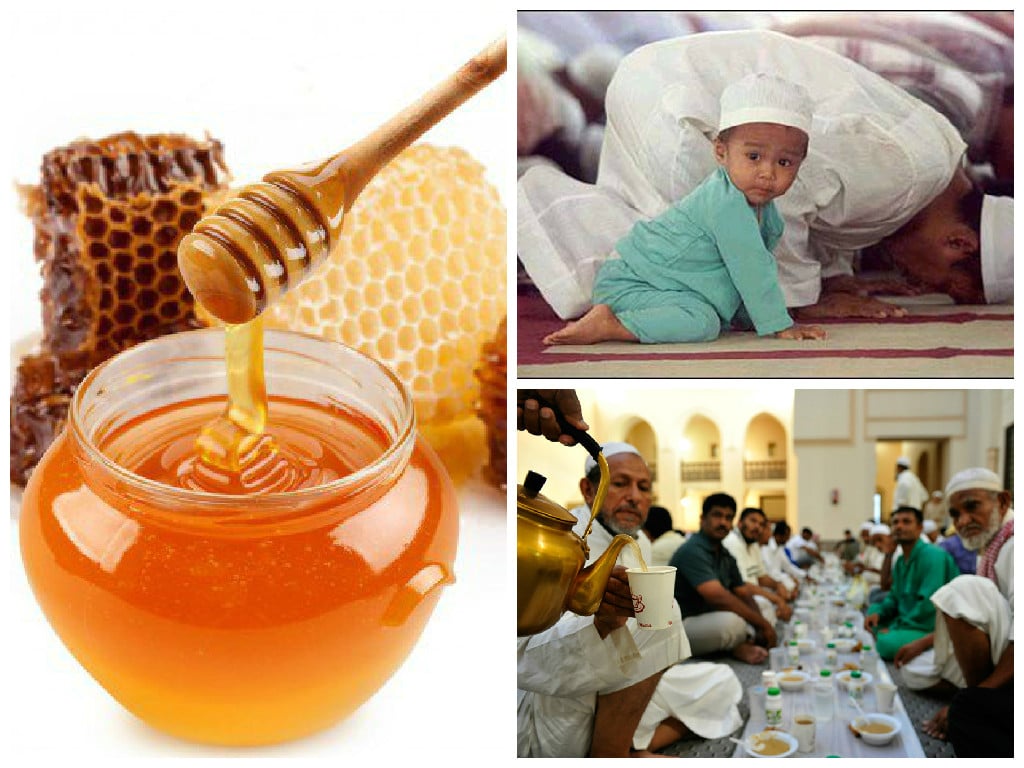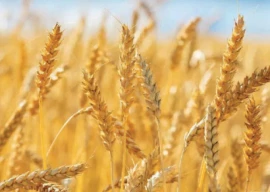
Here are a list of 20 rules from Islamic teachings that can greatly benefit your health:
1. Refraining from consuming alcohol
 PHOTO: SCIENCE DAILY
PHOTO: SCIENCE DAILYThe prohibition on alcohol is probably one of Islam's most well-known dietary restrictions, with valid reason. According to health website WebMD.com, not only does alcohol cause cirrhosis of the liver and reduce concentration resulting in accidents, it can also contribute to conditions such as anemia, cancer, cardiovascular disease and even Alzheimer's.
2. Refraining from eating pork
 PHOTO: THE SCOTTISH BUTCHER
PHOTO: THE SCOTTISH BUTCHERThis is another one of Islam's dietary restrictions that would be well known to many. Despite being one of the most consumed meats worldwide, pork introduces various viruses and bacteria in the body, according to healthy living website Livestrong.com. This in turn can contribute to vomiting, fever, diarrhea, abdominal cramps and dehydration, all of which can prove fatal in extreme cases.
3. Practicing moderation in diet
 PHOTO: NBC NEWS
PHOTO: NBC NEWSIslam emphasises moderation - not too much and not too little - in every aspect of life. The second half of verse 31 of Surah Al-A'raf states, "Eat and drink, but be not excessive. Indeed, He likes not those who commit excess." A hadith in Tirmizi further advises Muslims to leave "one third of the belly with food, another third with drink and leave one third empty for easy breathing."
When it comes to our diet, it has been scientifically proven that eating too much can contribute to weight gain and obesity, and all the health concerns stemming from it. Similarly, eating too little can result in your body not receiving the nutrients it needs for proper development and survival.
4. Using toothpicks after every meal
 PHOTO: LIVE SCIENCE
PHOTO: LIVE SCIENCEProphet Mohammad (pbuh) encouraged his followers to use a tooth pick because "siwaak (toothpick) cleanses the mouth and pleases the Lord after every meal." (Sahih al-Bukhari) It cleans out food-buildup in your teeth, preventing decay and reducing the risk of cavities and tooth and gum infections.
5. Washing hands before & after meals
 PHOTO: MSU TODAY
PHOTO: MSU TODAYThe Prophet (pbuh) has strongly advised that one should wash his hands before and after a meal. “It is a blessing to wash your hands before and after meal.” (Abu Daud & Tirmizi)
In the same vein, islam.ru states that Prophet (pbuh) has strongly advised not to clean hands with a towel before a meal because it may transmit infections from one person to another.
6. Emphasis on personal hygiene
 PHOTO: DRY CLEANING
PHOTO: DRY CLEANINGIslamic teachings lay great emphasis on keeping one's clothes and self clean. Tirmizi, Adab, 41 exhorts, “Certainly, Allah is clean and He likes cleanness.” It is highly advised to clean rubbish, take daily showers and not leave bodily waste out in the open. As the various European plagues of the Middle Ages have shown, not observing these precautions can lead to infestations of insect-spreading rodents.
7. Keeping the lid on utensils
 PHOTO: WIKIPEDIA
PHOTO: WIKIPEDIAStressing on proper care of kitchen utensils, Prophet Mohammad (pbuh) said, “Cover up the utensils and tie the mouth of the water skins.” (Bukhari, Muslim) This prevents contamination from passing insects and lizards and in houses with open kitchens keeps stray animals away from the food.
8. Male circumcision

Islam makes it compulsory for all Muslim males to be circumcised. According to WebMD.com, male circumcision reduces the risk of urinary tract infections, reduces the risk of sexually transmitted diseases in men, protects against penile cancer, and reduces the risk of cervical cancer in wives.
9. Washing after urination and defecation
 PHOTO: ALI EXPRESS
PHOTO: ALI EXPRESSIn contrast with Western practice, Islamic teachings require followers to wash genitals with water after urination and defecation. This method aids in complete removal of waste matter and associated bacteria, reducing risks of infection.
10. Refraining from consuming blood in any form

PHOTO: IMG KID
Strangely enough, blood that keeps you alive when it flows in your veins can prove toxic if it enters your digestive system, and this is why the zabiha method of slaughter requires blood to be drained from livestock before it is eaten. Blood is rich in iron, which the human digestive system is not designed to handle in large quantities. An iron overdose can cause liver damage, buildup of fluid in the lungs, dehydration, low blood pressure, and nervous disorders.
11. Enjoying some shut-eye in the afternoon
 PHOTO: INTRIGUING
PHOTO: INTRIGUING Prophet Mohammad (pbuh) was in the habit of sleeping for a while after lunch and encouraged his companions and followers to do the same (Tabrani). Narrated Thumamah ibn Uthal, Anas said, “Um Sulaim used to spread a leather sheet for the Prophet (pbuh) and he used to take a midday nap on that leather sheet at her home.” A short mid-day nap gives relief to the vital organs of the body including the heart and brain.
12. Praying five times a day
 PHOTO: VIRTUAL MOSQUE
PHOTO: VIRTUAL MOSQUEApart from the spiritual aspect, praying five times a day at fixed times introduces routine in one's life. The movements involved in the ritual provide a very light form of exercise and keeps the blood circulation going. The arrangement of prayers is such that those at the time of empty stomach are brief but those after meals are longer and give more exercise to the body in order to aid digestion after a heavy meal.
13. Turning to medical professionals for treatment
 PHOTO: ENHANCED MEDICAL CARE
PHOTO: ENHANCED MEDICAL CAREKitab al-Tibb narrates the Prophet (pbuh) having said, "Make use of medical treatment, for Allah has not made a disease without appointing a remedy for it." Continuing a treatment for as long as is required improves chances of recovery, reduces chances of complications and death and improves quality of life for the patient.
14. Treating fever with cold water

The practice of applying cold compresses and ice packs to the foreheads of patients suffering from fever has its roots in Islamic tradition. According to Sahih al-Bukhari, "Fever is from the heat of Hell, so put it out (cool it) with water." Elevated body temperatures can prove fatal beyond a certain point, and applications of cold water can bring them down to normal faster.
15. Eating black seeds
 PHOTO: GAIAHEALTHBLOG
PHOTO: GAIAHEALTHBLOGIslamic teachings insist that black seeds should be a part of your daily diet. Hazrat Abu Hurairah states, “I have heard from Prophet (pbuh) that there is cure for every disease in black seeds except death." In seed or powder form, kalonji can reduce obesity, aid digestion, treat several digestive disorder, reduce blood pressure and treat congestion. Kalonji oil has proved to be effective in reducing joint pain and inflammation.
16. Fasting in the month of Ramadan
 PHOTO: DNA INDIA
PHOTO: DNA INDIAThe medical community is gradually beginning to recognize the medical benefits of refraining from eating for the better part of the day. Not only can this fasting help us to lose fat, it also gives our digestive system a much-needed and truly well-deserved break. It also increase neuronal autophagy, which means that your brain neurons flush out toxins. However, science has also shown that extending a fast beyond 30-40 days can result in starvation and this is not recommended.
17. Eating a date when breaking the fast
 PHOTO: NUTS
PHOTO: NUTSExtended hours of not eating and drinking can deplete the body of glucose, which is the body's primary source of energy. Breaking the fast with a date provides a quick and easy way to replenish the body's glucose reserves. Narrated Anas bin Malik, "The Prophet (pbuh) used to break his fast before offering evening prayer with some fresh dates." In case dates are not available, it is strongly advised to drink water, which helps to combat the dehydration caused by a fast.
18. Using honey to treat infections
 PHOTO: VP TRADE
PHOTO: VP TRADEVerse 69 of Surah Al-Nahl in the Quran mentions honey as a source of "healing for mankind", for good reason. Honey offers incredible antiseptic, antioxidant and immune boosting properties for our body and health. It not only fights infection and helps tissue healing but also helps reduce inflammation, even helping to cure coughs and flu, and treat acne.
19. Refraining from gobbling food and drink
 PHOTO: MIRROR UK
PHOTO: MIRROR UKIslamic teachings encourage followers to eat slowly and chew each morsel before swallowing. It takes your brain some time to register that your stomach is full and eating slowly ensures that you have not consumed excess calories before your brain receives this signal. Here's another benefit: not only does eating slowly and mindfully help you eat less, it also enhances the pleasure of the dining experience.
20. Dealing with substance abuse
 PHOTO: RECOVERY
PHOTO: RECOVERYWe learn from verses 90 and 91 of Surah Maidah that Islam is opposed to the use of any intoxicants. The detrimental effects of cigarettes are well-documented and there would be hardly anyone who was not well-aware of the harm caused by smoking. In addition, the lives, and in many cases the untimely deaths, of many celebrities are a testament to the devastating effects of substance abuse.
COMMENTS (11)
Comments are moderated and generally will be posted if they are on-topic and not abusive.
For more information, please see our Comments FAQ




































Seriously many of the useful guidelines in this single article.